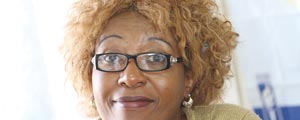
I received a call from a woman from Eastlea who insisted that the body that will be established to investigate sexual abuse cases in churches to also include survivors of rape.
Saturday Dialogue with Ropafadzo Mapimhidze
She noted that it would not be surprising to find that, some of the people that would be chosen to investigate these churches, were also perpetrators of the crime. The woman, who was sexually abused by a foreign pastor, said it was imperative that the people that would be chosen to spearhead this investigation, should be men and women of integrity.
This is because churches are not very good at dealing with guilt and shame since all dubious activities are viewed as having been caused by the devil. Revelations of illicit sex that happened at jailed leader of the RMG Independent End Time Message Robert Martin Gumbura is just but one case of many that may just begin to unravel.
Archbishop Johannes Ndanga of the Apostolic Christian Council of Zimbabwe recently urged the women’s movement to hold workshops for women congregants, to avert sexual abuse.
He said sexual abuse topped the list of cases his organisation was dealing with while a few other cases involved pastors that used careless language at the pulpit. But he said his organisation would only investigate uncouth operations of churches after receiving complaints from congregants.
The man of the cloth added that there were at least 15 cases from various Christian denominations which were under investigation.
He urged girls and women in all churches to ensure that they are not found in the company of a pastor alone, whether at prayer shrines or any other duties at any time whatsoever.
- Chamisa under fire over US$120K donation
- Mavhunga puts DeMbare into Chibuku quarterfinals
- Pension funds bet on Cabora Bassa oilfields
- Councils defy govt fire tender directive
Keep Reading
His sentiments were echoed by wife of River of Revival church pastor, Audrey Mutanga, who said standards should be set for counselling and prayer since some of these abuses took place during such sessions.
Men of the cloth are not at par with God and when that man of God does something that is not right, an individual should be able to say NO.
However, some of these churches play on people’s emotions and congregants are easily duped into conforming to unethical standards of practice.
Witch hunting will be not proper, but creating awareness is the only way to liberating women from these sex pests.
Archbishop Ndanga noted that there could be many women suffering in silence because they fear being dumped by their spouses.
He urged government to come up with a board that would look into such matters, but the question is where will these people be drawn from?
Are we not coming up with a board that may just fuel sexual abuse cases or ignore the reports to protect their fellow colleagues?
Sexual abuse in churches is not a new thing at all and we all know what happened in the Catholic Church where cases dating back to the 50s and 60s are being heard today.
A popular local apostolic sect leader is known to have raped the wife of a congregant, but the matter was hushed by her husband because he feared tarnishing the image of the church.
However, this man died in the mid-2000 when his widow decided to bring up the criminal matter, which apparently took place in 1965 and reported at a police station in the then Enkeldoorn (now known as Chivhu). The matter went cold although it was a case that was known by the leadership.
Plans to establish a child care unit by Archbishop Ndanga’s organisation is a noble idea, but this organisation should run independently from churches because there could be a conflict of interest.
This is because some of these cases are institutional, and to avoid such practices, outsiders who have nothing to do with the day-to-day running of churches, should be appointed.
Some of the cases that are institutional include apostolic sects that encourage polygamy involving girls that are too young to carry out marital duties. Such matters are difficult to expose.
Over four decades ago, my late mother taught a pupil at a primary school in a neighbouring country, who had been bequeathed to an old man from an apostolic sect.
The pupil was hardly 12 years old when this happened and she crushed a bottle into little pieces, mixed the broken bottles with water and drank the contents.
She was taken to a general hospital where she underwent an operation to remove the broken pieces of bottle, some of which were stuck along the oesophagus.
The local Catholic Church took custody of this child, sent her to school and she later married a man of her choice in England where she is living happily.
There are so many other institutional wrongdoings in some churches like one South African pastor who made his congregants eat grass. The congregants, who looked as though they were in a trance, dashed into the church grounds bleating like goats and started eating grass.
The anticipated board should also be wary of certain individuals that may come up with false allegations against some men of the cloth.
There is one leading Pentecostal church in Zimbabwe that comes up with all sorts of sexual abuse and fraud cases levelled against church leaders just before elections of new office bearers are elected.
One young pregnant woman was promised a house and a car if she told the world that she had been impregnated by a leading Pentecostal church leader who broke away from the mother body.
She later testified to the congregation what she had been told to do so as to blemish her church leader in exchange for luxuries.











